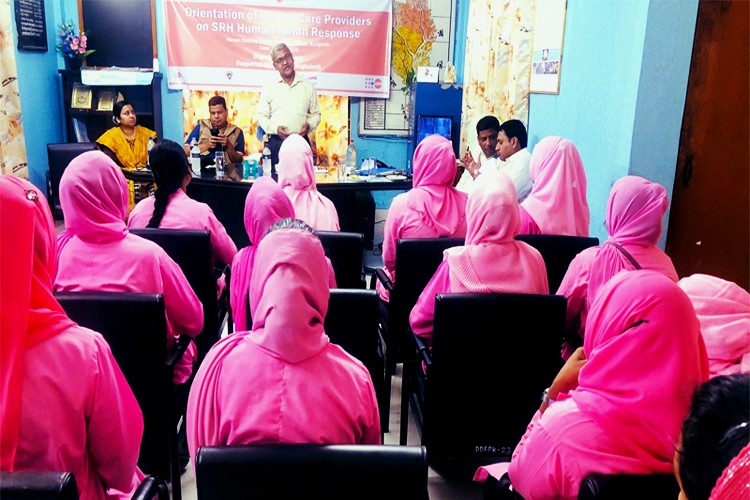News Flash

KURIGRAM, May 25, 2025 (BSS) - Health experts at an orientation programme said it is crucial to prepare a list of pregnant mothers in flood-prone pasture areas to ensure reproductive health services, four checkups, and institutional deliveries during floods.
They said the Directorate General of Health Services in association with LAMB Hospital and UNFPA is preparing such lists to ensure emergency reproductive health care for pregnant mothers at flood risk and humanitarian assistance in riverine char areas.
Under the program, humanitarian response awareness meetings and volunteer orientation programs were arranged in Gaibandha, Kurigram and Jamalpur and Sirajganj districts in recent weeks to make initial preparations for this purpose.
They said that the locals, especially pregnant and lactating mothers, face terrible losses due to seasonal or flash floods in char areas along the Brahmaputra and Jamuna rivers every year.
A reproductive health care program has been running under the initiative of the UNFPA and the Directorate General of Health Services with technical assistance from Lamb Hospital in the region to address the reality.
Reproductive Maternal Neonatal Child-Adolescent Health (SRMNCAH) project manager of LAMB Hospital Mahatab Liton highlighted activities related to reproductive health, including mobile camps, baby kit distribution, and referral support in the events.
Program Analyst of the United Nations Population Fund (UNFPA) Bangladesh Md Shamsuzzaman was present in the orientation program.
Assistant director (clinical contraception) of the department of family planning for Kurigram Dr Manzur Hossain, LAMB project manager Mahatab Liton, district facilitator Md Asaduzzaman and SRMNCAH project officer Mohammad Ali addressed the event.
The participating midwives were given guidelines for advance preparation to ensure reproductive health services of target population so that 24/7 normal delivery services are not stopped and follow-up is provided to high-risk pregnant mothers during disasters.
At the event, local volunteers were also given necessary guidance for identifying fistula patients in char areas.